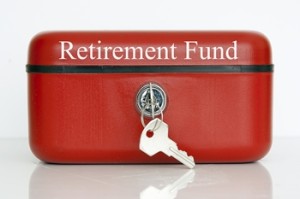AARP working with state to sell government retirement accounts

By Tom Steward | Watchdog Minnesota Bureau
ST. PAUL, Minn. — The state government may struggle to balance a budget and fix insolvent pension accounts, but that isn’t stopping it from thinking about hawking a state-run retirement savings account.
Potential customers should know the real sales pitch is coming from the American Association of Retired Persons, a national advocacy group with 650,000 members in Minnesota alone. The Service Employees International Union supports the plan, too.
“Our concern is that tomorrow’s seniors will be more reliant on Social Security, which will not provide enough for a comfortable retirement,” said Seth Boffeli, communications director for AARP Minnesota. “We need to give people more ways to save, and expanding access to workplace savings plans is a great place to start.”
If the concept sounds familiar, it’s because consumers can already choose from a lengthy list of competitively priced products —401 (k), 403 (b), 401 (a), 457 (b) and traditional and Roth IRA’s, for example.
Yet bills to establish state-administered retirement accounts for private-sector workers and directly compete with financial firms in the marketplace continue to surface in statehouses in Connecticut, Arizona, California and Illinois and here, among other states.
TOO BROKE TO RETIRE? AARP says most Americans facing retirement cannot afford it. But can taxpayers afford government-run private retirement accounts?
In the Minnesota Secure Choice plan, people could invest in a portable retirement account that follows them from job to job.
A Retirement Investment Board with nine political appointees would oversee a separate account in the state treasury, and the State Board of Investment or a contract financial firm would invest the money, sort of a lock-box to keep lawmakers at bay.
“Some people disagree, but there are people who trust government in working for the common good, and that would make it attractive to some people,” said Jim Scheibel, former mayor of St. Paul and AARP board member. “And our state pension fund board invests conservatively, but it’s solid and, for retirement savings funds, that’s what people are looking for.”
If the state gets in the business, however, opponents warn the livelihoods of some 140,000 Minnesotans in the finance and insurance industry would be anything but secure. They also caution that taxpayers would be on the hook for a bigger bureaucracy and potential bailout, if and when the market tanks.
“There would be a big cost to actually get this up and running,” said Beth Kadoun, a fiscal policy expert with the Minnesota Chamber of Commerce. “Even though they have language in the study that says taxpayers would not have any obligations, the reality is that if there was any problem with the plan, the next bill you would see would be for the taxpayers to bail out this state-run plan.”
An AARP survey shows nearly 40 percent of Minnesota workers do not have access to a retirement savings plan through their employer. More than 70 percent of respondents support government-run accounts, while 76 percent said they have not saved enough for retirement, including one of the bill’s authors.
“As a working person in a nursing home for 35 years, no one ever offered me any opportunity to save, ever,” said Rep. Patti Fritz, DFL-Faribault, vice chair of the House Commerce and Consumer Protection Finance and Policy Committee at a recent hearing. “And I come here today as a representative, we all receive some pittance of a pension, that’s all I have. Most of the workers that I worked with all of my life and constituents that I represent have nothing. So this is an opportunity, an alternative.”
“Just because the employer isn’t offering you that opportunity, doesn’t mean it doesn’t exist. There are lots of places you can go to sign up and invest,” Rep. Ron Kresha, R-Little Falls, said at the hearing. “… Perhaps we could just put a computer with an Internet connection in with employees and give them a list of 1o websites to explore this.”
Legislators downgraded the retirement plan proposal to a study, due back in time for consideration by the 2015 Minnesota State Legislature. A legislative alert from the National Association of Insurance and Financial Advisers urges members to spread the word.
“There are meaningful ways to increase savings without exposing the state and employers to significant risks and costs. Retirement solutions already exist. The challenge is getting employers and consumers to take advantage of them,” states the NAIFA advisory.
Contact Tom Steward at tsteward@watchdog.org







